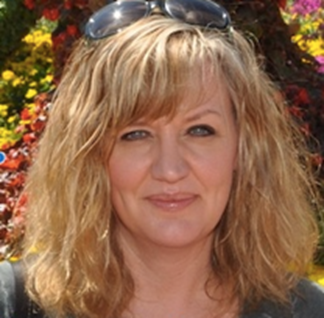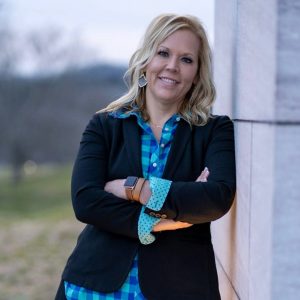
Build capacity of the Prevention Workforce to deliver effective prevention strategies and programs
Support those individuals who will be working toward IC&RC Prevention Certification
Build knowledge and skills in a variety of training topics aligned to SAMHSA Priorities
SAMHSA 4E’s Modern and Comprehensive Prevention System
The Application of Prevention Science and the Role of Harm Reduction
Communication Techniques for the Prevention Specialist
SAMHSA recently introduced the 4 E’s as a “Modern and Comprehensive Prevention System” to support the work of prevention providers in States and communities. The 4 E’s: Early Action, Easy Access, Equitable Opportunities and Effective Delivery, provide a vital system for ensuring that prevention efforts are planned and implemented in an equitable and effective manner. In this 2-part “Learning Lab” series, we will describe and explore a) how the 4 E’s can be applied in prevention work and b) how the 4 E’s can be implemented throughout the Strategic Prevention Framework.
Describe how the 4 E’s describe a modern and comprehensive prevention system
Explore how the 4 E’s relate to their work as preventionists
Provide insights into how the 4 E’s can be operationalized in their work
This is part 2 of the “4 E’s Learning Lab” series. Presenters will describe and explore a) how the 4 E’s can be applied in prevention work and b) how the 4 E’s can be implemented throughout the Strategic Prevention Framework.
Describe how the 4 E’s intersect with the Strategic Prevention Framework (SPF)
Provide insights into how the 4 E’s can be operationalized within the SPF
Network with prevention providers, community coalitions and community partners on how to apply the 4 E’s in their work.
As the overdose crisis continues to change, we must take a pragmatic, evidence-based approach to saving lives, reducing risk, and removing barriers to effective interventions. This requires that we provide care and services that respect the health and dignity of people who use drugs. While understanding primary prevention is an essential first step toward addressing overdoses, harm reduction is vitally important to keeping people who use drugs alive and as healthy as possible. This session will look at harm reduction as an approach that emphasizes engaging with people who use to prevent overdose and improve the physical, mental and societal well-being.
Define Harm Reduction.
Explore how prevention science practice and harm reduction intersect.
Identify tools and best practices.
This course is designed for prevention professionals and practitioners to address the job tasks of the Communication Domain of the Prevention Specialist credential. Course content will build knowledge and competency in organizational communication such as discussion facilitation, effective listening, consensus building, presentation delivery and public speaking. Also, course content will address interpersonal communication to the masses including promotions, public relations, marketing, and health education of mission and strategies.
Understand the important role of communication in the practice of prevention.
Identify tools and skills intended to build competency in organizational communication.
 Carlton Hall is the President and CEO of Carlton Hall Consulting LLC (CHC), a multi-faceted, full-service consulting firm designed to provide customized solutions and enable measurable change for communities, organizations, families, and individuals. Carlton Hall has been providing intensive substance abuse prevention focused and community problem solving services to the nation for the last 25 years. Currently, Carlton and the CHC team provide executive training and technical assistance support to the Southeast PTTC (Region 4)
Carlton Hall is the President and CEO of Carlton Hall Consulting LLC (CHC), a multi-faceted, full-service consulting firm designed to provide customized solutions and enable measurable change for communities, organizations, families, and individuals. Carlton Hall has been providing intensive substance abuse prevention focused and community problem solving services to the nation for the last 25 years. Currently, Carlton and the CHC team provide executive training and technical assistance support to the Southeast PTTC (Region 4)
 Dorothy Chaney is the Founder of Wisconsin Community Health Alliance, an organization committed to supporting coalitions, agencies, and individuals to improve the health of their communities and the environments in which they live. Dorothy is committed to equity in community health and works with communities both nationally and internationally to address health disparities and support the development of local solutions to complex problems. For more than 20 years, Dorothy has worked with community-based coalitions to address the impact of substance use on youth and families. Dorothy has also served on many state level work groups and advisory committees in Wisconsin. Chaney also works with communities to implement collective impact approaches to improve community health.
Dorothy Chaney is the Founder of Wisconsin Community Health Alliance, an organization committed to supporting coalitions, agencies, and individuals to improve the health of their communities and the environments in which they live. Dorothy is committed to equity in community health and works with communities both nationally and internationally to address health disparities and support the development of local solutions to complex problems. For more than 20 years, Dorothy has worked with community-based coalitions to address the impact of substance use on youth and families. Dorothy has also served on many state level work groups and advisory committees in Wisconsin. Chaney also works with communities to implement collective impact approaches to improve community health.
 A retired substance use prevention coalition director, Stephanie Strutner, MPH owns and operates an independent consulting firm, Catalyst Evaluation Group, through which she provides support to clients through measuring impact and conducting biostatistical and epidemiological analyses. She also serves as consultant and trainer for Community Anti-Drug Coalitions of America (CADCA) where she teaches the intensive three-week National Coalition Academy for the Office of National Drug Control Policy. She is a trainer and consultant for the Alliance of Better Nonprofits in Knoxville where she helps support local charities to operate using effective business models and evaluate effectiveness to achieve sustainability and serves as the part-time CEO for the Prevention Alliance of Tennessee.
A retired substance use prevention coalition director, Stephanie Strutner, MPH owns and operates an independent consulting firm, Catalyst Evaluation Group, through which she provides support to clients through measuring impact and conducting biostatistical and epidemiological analyses. She also serves as consultant and trainer for Community Anti-Drug Coalitions of America (CADCA) where she teaches the intensive three-week National Coalition Academy for the Office of National Drug Control Policy. She is a trainer and consultant for the Alliance of Better Nonprofits in Knoxville where she helps support local charities to operate using effective business models and evaluate effectiveness to achieve sustainability and serves as the part-time CEO for the Prevention Alliance of Tennessee.
CONTACT HOUR ELIGIBILITY
In order to be eligible for the stated contact hours/certificate of attendance, you must join the live webinar on the video platform.
Certificates must be requested within one week of the event and will be processed within 30 days.
If you are having issues accessing the room/application at the time of the event: Please email [email protected] at the start of the webinar so that we can assist you.